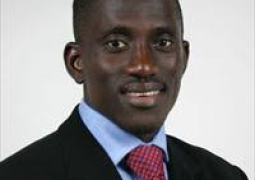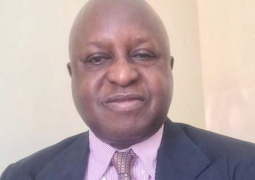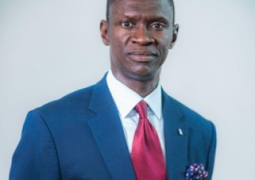It was on April 10 -11, 2000 that former Gambian dictator, Yahya Jammeh, commanded his troops to senseless and brutally gunned down over a dozen student demonstrators for merely demanding justice over ‘‘murder and rape’’ by paramilitary officers. It resulted to one of the most awful and appalling days ever witnessed in The Gambia. The country was stunned and shocked with the new norm. The international community was also dumbfounded and started issuing protest notes but to no avail. Even though Jammeh’s own APRC government had publicly acknowledged that the government woefully ‘‘failed to inquire into the causes of the breakdown of public order during the student demonstrations’’.
Some of Jammeh’s senior officials including Ministers also shunned the nation by describing the murdered students as ‘‘sons and daughters of the opposition’’. It was outrageous and scandalous. In addition, it was the same regime that cowardly murdered Deyda Hydara, editor and co-proprietor of The Point Newspaper, for routinely asking questions over the murders of the young Gambians.
Consequently, Jammeh’s own ‘‘Commission’’ equally accepted that everything ‘‘humanly possible’’ had been done to ascertain the ‘‘primary fact’’ regarding the two incidents: a rape and murder case of two promising Gambian students. But no one was ever brought to justice for the injustice committed. Notwithstanding, Deyda Hydara, who demanded justice for the victims was himself condemned. Hydara, was one of the most humble and down to earth person who treated people fairly. During a press conference at the State House following the official visit of Amadou Toumani Toure, 3rd President of Mali, Deyda quietly hinted that I asked my question before him even though he was a senior editor.
It was also acknowledged that due to the APRC government’s excessive powers and total lack of clarity, transparency and fairness - combined with the arrogant slogan of ‘‘Yahya by force’’, resulted to the brave Gambia Students’ Union to defy the status quo and organised a peaceful protest. But Jammeh’s troops without basic human rights training, and respect for the right to life that human beings have the right to live and not to be killed by another entity including the government, forcefully intervened and started to open fire causing untold mayhem. It later led to the untimely death of 14 unarmed students. They were brutally and heartlessly shot and killed in broad daylight. Some of the students lay frozen with slogans and flags demanding justice and impartiality. It was the straw that broke the camel’s back.
The youngest victim was 2-year-old Musa Sembene, even though many media reports both nationally and internationally referred to him as Ousman Sembene. The latter is the father of the deceased. I personally escorted Musa’s dad to the office of Ousman Jammeh, who was the Ombudsman and also a Master of the Court to register the young victim’s name. The bullet that killed Musa lodged inside his head for few days until he was evacuated by his father to Dakar, Senegal. Few days later, he was pronounced dead. His family was devastated due to his untimely death. I reported the matter from beginning to end and knew the family well. Newspaper reports I published will be later exhibited at the Gambian Truth Commission known as the TRRC.
There is no doubt that it was a violent, senseless and unnecessary suppression of the students. The demonstrations could have been easily resolved in a democratic manner but the government was unwilling to listen to the students’ concerns and worries. Interestingly, the student leaders had earlier forwarded their worries and grievances for the government to address but the authorities failed to even respond adequately. The students gently gave the government a deadline to investigate the alleged rape of Binta, a female student and the torture to death of Barry, another male pupil. However, as usual, the government refused to conduct an independent or fair inquiry and instead issued threats against the students.
Another death student whose identity and nationality was underreported was Soulaymane Mansare, who was a Senegal national studying Arabic in the Gambia. The young pupil was equally slaughtered during the demonstrations.
Landing Badjie, commonly known as 13 Badjie, a confidant and personal adviser to Yahya Jammeh and a Director at the defunct National Intelligence Agency (NIA) who was swiftly promoted by Jammeh, publicly acknowledged that the student demonstrations were ‘‘eminent’’. Badjie, one of the senior directors at the NIA, knew very well that the students were not given the respect they deserved. An amicable solution could have been reached and several young lives spared. But once again, instead of apologising and compensating the families of the deceased, insensitive and inefficient government ministers publicly blamed the ‘‘opposition and troublesome student leaders’’.
We covered the entire student demonstrations and saw for myself what happened during the incident. We witnessed the action of our security forces from Westfield junction towards the Gambia Red Cross headquarters where the late Omar Barrow, a journalist and a Red Cross volunteer, was identified, shot and killed by the Paramilitary Police. Barrow was killed at point-blank range while helping wounded students. The shooting of the late journalist took place in public view at the Gambia Red Cross, even though the victim was still wearing a visible Red Cross dress. When journalists, were later invited at the Red Cross headquarters to see first-hand how Barrow was killed, including his bloodstained belongings, emotions were high.
Barrow’s bag, belt and other personal effects were soaked with blood. Red Cross officials recalled how the late journalist and Red Cross volunteer hid under a desk to escape his assassin. Gambians found it difficult to digest that the Gambia Red Cross building could be besieged and invaded. Barrow was a defenceless and vulnerable target. The journalist left a young spouse and a little baby.
Also, we also saw troops roaming and driving fully armed with riot gears towards Bakoteh and Kotu where many students from school were still on their school uniforms. Some students were arrested on the spot by armed men, beaten and tortured in the streets and in public view. It was appalling and dreadful! Some of them changed clothes in order to avoid recognition. They were innocent pupil just returning home from school. Others were randomly arrested and taken away, school computers and belonging smashed and destroyed. Female students later alleged that they were sexually assaulted and raped inside military barracks. They were frustrated and angry.
The APRC government’s press released and translated in various local languages blaming the students was outrageous and malicious. It was a brutal propaganda! What journalists discovered and witnessed was completely different from what authorities told the nation. Due to the emotions and anger across the country and abroad, a controversial and contentious ‘‘Commission’’ was set up to look into the event. It was biased in setting and selection and also lack credibility and impartiality. It already predictable a prejudice and bias outcome and accordingly prompted severe criticism both nationally and internationally. The Commission was described as a ‘‘kangaroo-court’’. Under pressure, the authorities finally decided to organise a press conference on the matter. It was held at the Attorney General’s Chambers and Ministry of Justice. But the content of the briefing was even more appalling. Pap Cheyassin Secka, then Attorney General and Minister of Justice, read out a lengthy statement mainly blaming the students and the opposition for the disturbance. Minister Secka, mainly concentrated on the amount of money and belongings damaged and blamed “unruly students” and their alleged ‘‘instigators’’.
Wearing a white halftan (traditional dress), Pap Cheyassin Secka, a former convict implicated in the 1981 bloody coup d’état led by Kukoi Samba Sanyang against President Sir Dawda Jawara, shamelessly refused to answer any questions following his statement. He was quickly escorted briskly using a backdoor in the building. Journalists were stunned once again.
Furthermore, Ousman Jah, one of the Commission’s senior members selected from the religious community and also a member of the Supreme Islamic Council (SIC) and a Religious Studies teacher was among those selected. Taking into consideration the importance of his duties in a religious point of view, I personally met him and he granted me an interview. He strongly denounced the action of the security forces. At least one individual within Yahya Jammeh’s ‘‘Commission’’ was prepared to defend justice. But I was wrong. I quickly reached my desk at the Independent Newspaper, Kairaba Avenue only to receive a rude shock. The news editor called my attention to inform me that Jah ‘’begged’’ to withdraw his statement. I asked politely: ‘‘So he has decided to change his mind so quickly?’’ The editor simply responded: ‘‘Yes, he is withdrawing…that’s his right’’. The story was withdrawn.’’ That was it. My efforts went in vain!
Finally, if it is really true that the country means ‘‘Never Again’’ from any form of injustice and abuse in the future, it will be incomprehensible for anyone regardless of his or her status to either trivialize or belittle the killing of defenseless citizens. It will be gross injustice for the victims and their families as well as an affront towards the Gambians, TRRC and the international community to slur and smear the victims.
The good image of The Gambia abruptly tarnished by Yahya Jammeh and his cohorts must be restored without further delay. Thus the country cannot be compromised further for the selfish interest of few individuals who are unconcerned about its prosperity and development.
Finally, what is most striking is the fact that those who brutally tortured Gambians are still walking freely in the streets of Banjul. I visited the country recently from abroad to only saw Babou Njie (formerly of Safideen Photo Lab), one of the officers that brutally tortured and electrocuted me as a journalist at the NIA Head office in Banjul. It was a shocking experience. Moreover it is also preposterous that ex- NIA perpetrators who maltreated me namely Babou Njie, Demba Ceesay, Wassa Gassama and others are freely operating across the country. It is the height of injustice to victims like me.





